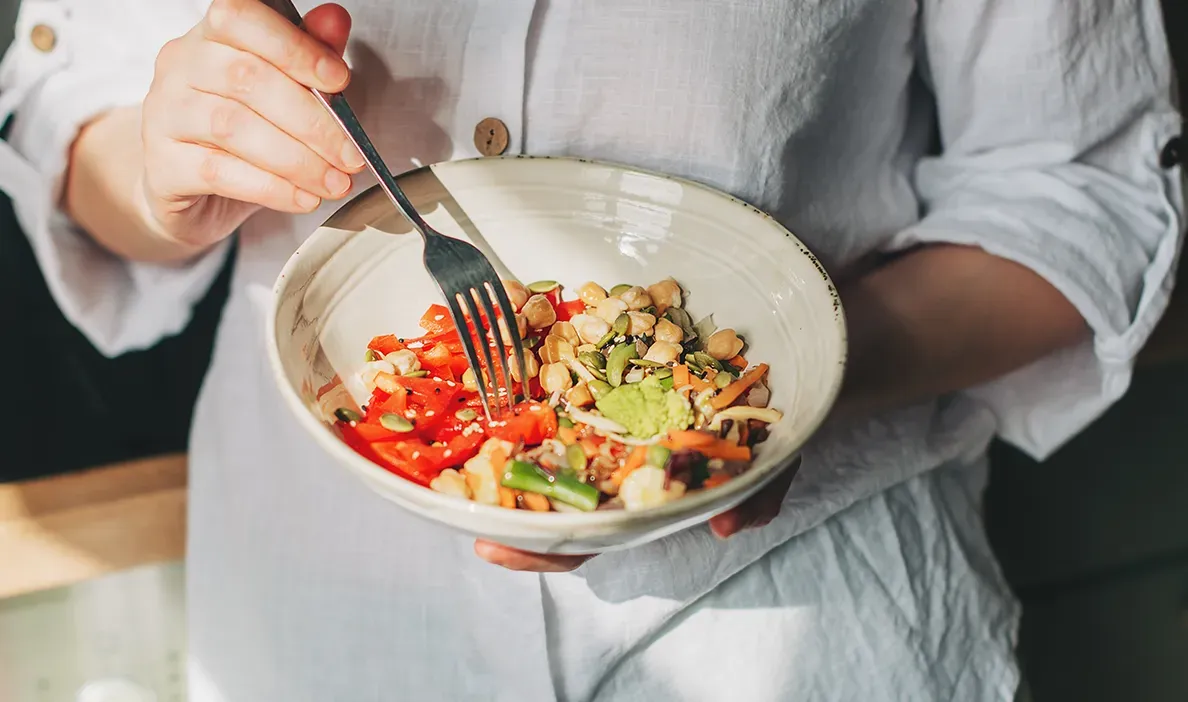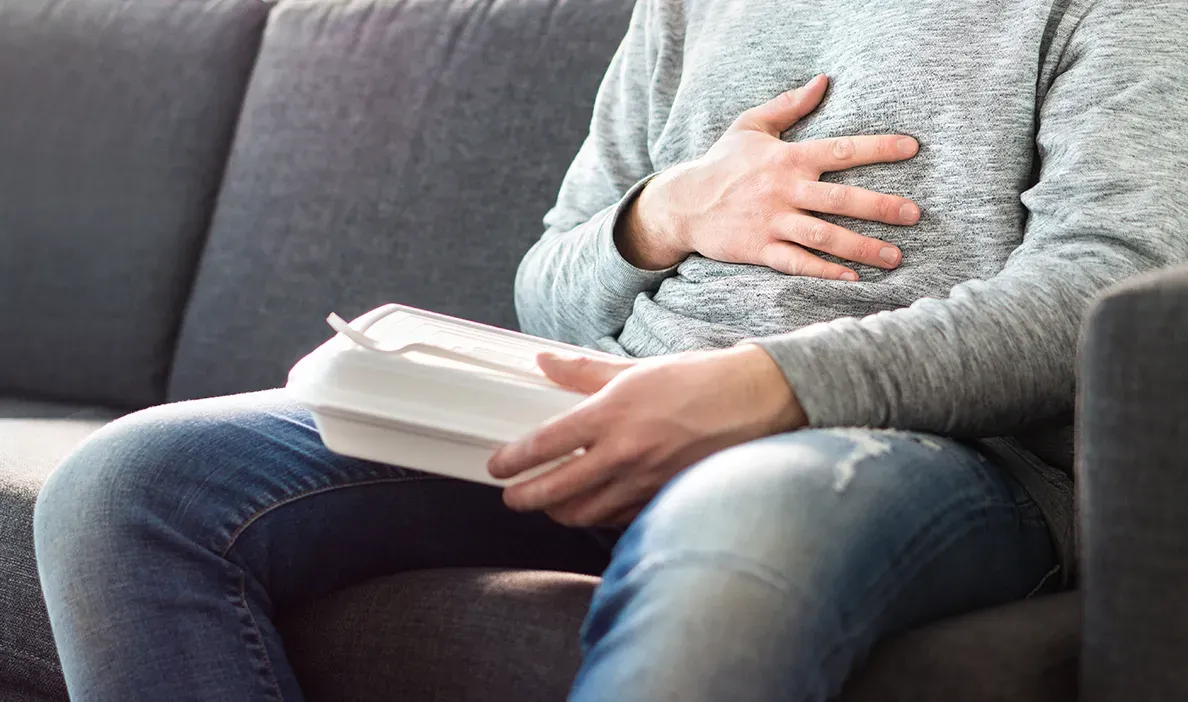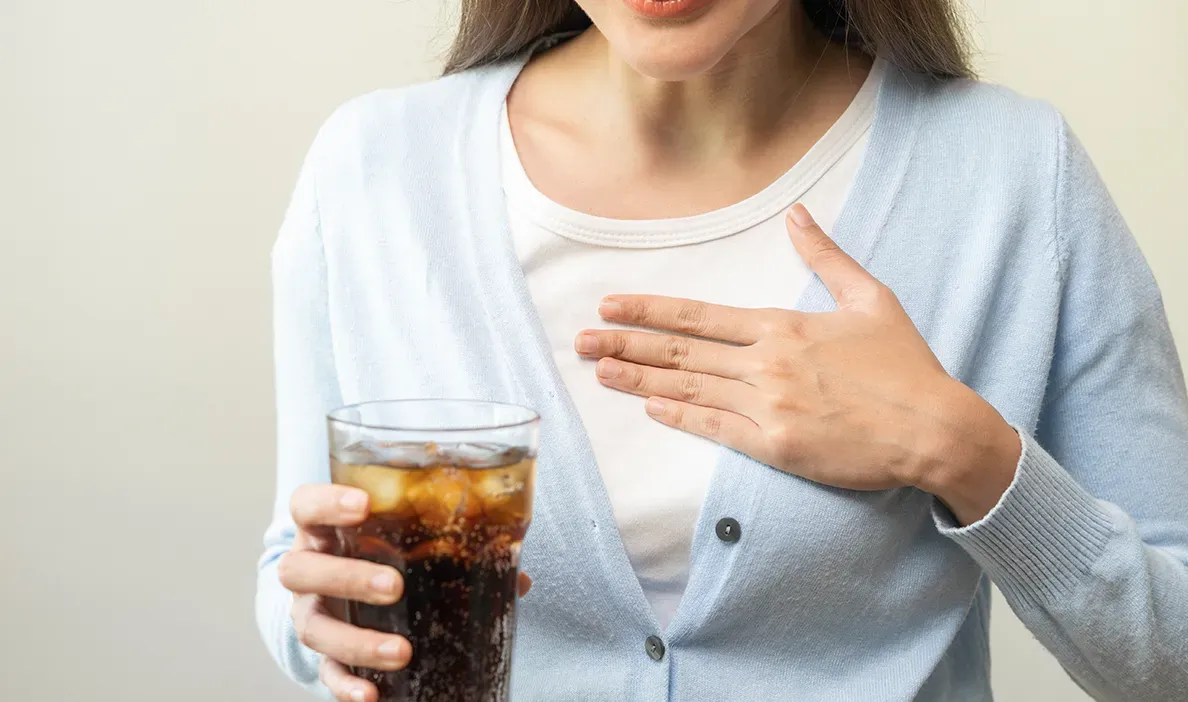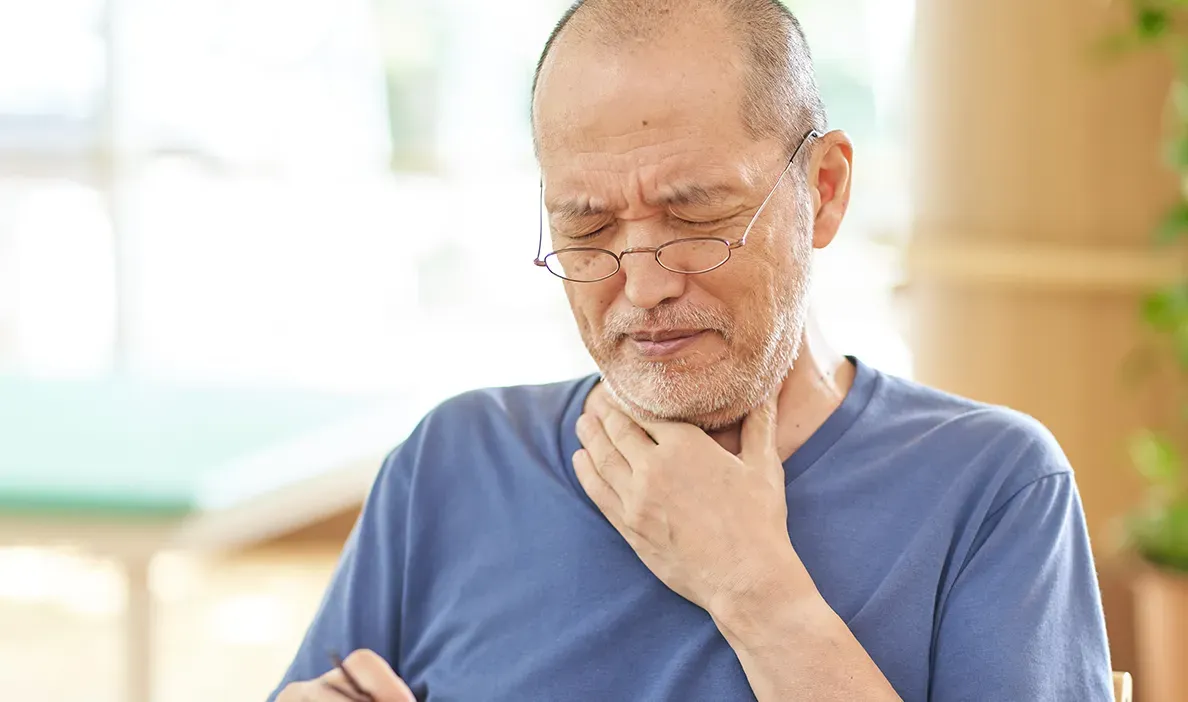Making sure you eat a healthy diet is important for everybody, but it’s even more important if you’re living with cancer.1 A healthy, balanced diet is a source of the nutrients your body needs to help you:2
- Increase your energy levels
- Feel stronger
- Keep your immune system healthy
- Improve your sense of wellbeing and feel in control
We know that it can be tough to keep a healthy diet when you are facing cancer, and we know that feeling as well as you can during your cancer treatment is important to you. So, we have put together a few tips for a healthy, nutritious diet that will help your body cope well during and after your cancer treatment.
Let’s help you take back some control.
What is a healthy diet?
A healthy, balanced diet is all about taking on the nutrients your body needs to work as it should. It is also about eating the right amount of food to achieve and maintain a healthy body weight.1,2
Generally, a healthy, balanced diet should consist of:
Lots of fruit and vegetables. These contain vitamins, minerals and fibre that help your body to function as well as it can. The general guidance is to aim for at least 5 portions per day.1,2
Carbohydrates. These are a source of energy for the body. Certain types of carbohydrate, including potatoes and wholemeal bread, rice and pasta, are high in fibre and can help you feel fuller for longer.1,2
Foods that are high in protein. Protein from chicken, lentils, beans and fish, helps you to build and maintain muscle in your body. This can help you to feel stronger and fitter.1,2
Some dairy. Milk, yoghurt and cheese can be a good source of calcium, vitamins and minerals. Dairy products can also be a good source of protein, which is important for your body to grow and repair itself.1,2
Small amounts of healthy fats: Go for foods containing unsaturated fats, such as nuts, avocado and olive oil.
Top tip 1:
Sometimes you might not feel like eating at all. On days like this, try drinking protein smoothies instead of eating large meals, or snack on granola bars or plain biscuits for some energy.4 Eating something is always better than eating nothing.
Top tip 2:
Make sure you are also drinking plenty of fluid throughout the day to stay hydrated.4 You should be drinking around 6 to 8 cups of fluid a day.5
Top tip 3:
If you are experiencing any mouth pain as a side effect of treatment, you may find that softer foods are easier to chew and swallow, such as boiled pasta or noodles, flatbreads, and blended fruit and vegetables.3
Top tip 4:
If you are experiencing constipation, you may benefit from eating food that is high in fibre. Foods that are high in fibre include porridge, fruit, vegetables and wholegrain rice and pasta.6
Always try to have a healthy plate
Building a balanced plate can help you get enough nutrients from your meals. This should look like:
- 1/4 Wholegrains and foods high in fibre, such as potatoes, wholemeal bread, brown rice, wholegrain noodles or pasta7
- 1/4 Healthy sources of protein, such as chicken, fish, beans or eggs7
- 1/2 Fruit and vegetables, including salad7
We know that it can be tough to keep a healthy diet when you are facing cancer, but maintaining a healthy diet will help your body to get the nutrients that it needs. Remember, it is okay if you are struggling with your diet, especially if you are making some big changes. If you need support with your eating habits, please speak to your doctor and they will be happy to help you.
Cookbooks
Now that we’ve helped you with the types of food you should be eating, you may be wondering what to do with these foods! We would recommend checking out the World Cancer Research Fund, Eat Well During Cancer recipe book.8
References
- NHS. Eating a balanced diet. Available at: https://www.nhs.uk/live-well/eat-well/how-to-eat-a-balanced-diet/eating-a-balanced-diet/ [Accessed June 2025].
- Macmillan. Healthy eating and cancer. Available at: www.macmillan.org.uk/cancer-information-and-support/impacts-of-cancer/healthy-eating-and-cancer [Accessed June 2025].
- Pearlpoint cancer support. Nutrition tips for managing sore mouth throat and tongue. Available at: www.lls.org/sites/default/files/National/USA/Pdf/PearlPoint/PearlPoint_Nutrition_Tips_for_Managing_Sore_Mouth__Throat__and_Tongue.pdf [Accessed June 2025].
- National Cancer Institute. Eating Hints: Before, during and after cancer treatment. Available at: www.cancer.gov/publications/patient-education/eating-hints [Accessed June 2025].
- NHS. Water, drinks and hydration. Available at: https://www.nhs.uk/live-well/eat-well/food-guidelines-and-food-labels/water-drinks-nutrition/ [Accessed June 2025].
- Cancer Research UK. Diet, fluid and exercise. Available at: https://www.cancerresearchuk.org/about-cancer/coping/physically/bowel-problems/types/constipation/diet-fluid-exercise [Accessed June 2025].
- Cancer Research UK. What is a healthy diet. Available at: https://www.cancerresearchuk.org/about-cancer/causes-of-cancer/diet-and-cancer/what-is-a-healthy-diet [Accessed June 2025].
- World Cancer Research Fund. Eat Well During Cancer. Available at: https://www.wcrf.org/wp-content/uploads/2024/11/Eat-well-during-cancer-2023-1.pdf [Accessed June 2025].






